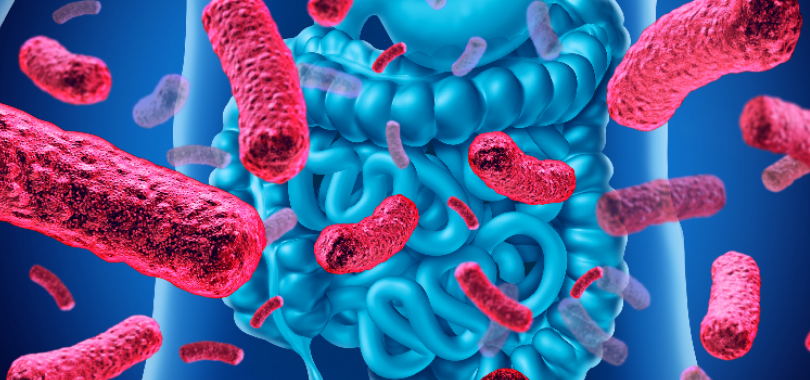Pelvic floor hypertonus is a condition that not many people hear about, or even know about. Often when we talk about pelvic floor dysfunction many people will automatically think of weak pelvic floor muscles often created from having children, or part of the aging process. This is where the pelvic floor muscles are too relaxing and need tightening and strengthening.
However more and more we are now seeing women, especially young women, with pelvic floor muscles that are too tight and non-relaxed and this is leading to chronic pelvic pain and other pelvic health and sexual health issues. This is called Pelvic Floor Hypertonus. For this article I will be talking about how Pelvic Floor Hypertonus affects women, even though men can have this as well.
What is Pelvic Floor Hypertonus?
Pelvic floor hypertonus occurs when the muscles in the pelvic floor become too tight and are unable to relax. Many women with an overly tight and non-relaxing pelvic floor experience pelvic health issues such as constipation, painful sex, urinary urgency, bladder issues and pelvic pain. Women with pelvic floor hypertonus may also have musculoskeletal issues that cause tightness and tension in surrounding hip, sacrum and pelvic muscles.
Pelvic floor hypertonus is not widely recognized and can often go on undiagnosed. It is certainly on the missed and dismissed list. Unlike in pelvic floor disorders caused by muscles too relaxed and are easily identified (such as pelvic organ prolapse or urinary incontinence etc), women affected by pelvic floor hypertonus may present with a broad range of nonspecific symptoms mentioned previously and below. All these related symptoms require relaxation and coordination of pelvic floor muscles and urinary and anal sphincters. Many of these symptoms can really affect the quality of woman’s life.
The signs and symptoms of pelvic floor hypertonus
The main and typical symptom of pelvic floor hypertonus is pelvic pain, or pelvic muscular pain. There can be a wide range of other symptoms including the following:
- Urinary issues such as urge frequency, frequent urination or painful urination
- Incontinence
- Slow flow, hesitancy, or delayed start of urination
- Constipation and straining when emptying the bowels.
- incomplete emptying of the bowels
- pressure feeling in the pelvis and rectum
- pain in the pelvis, genitals or rectum
- chronic pelvic pain
- muscles spasms in the pelvis, or pelvic floor
- low back pain
- hip pain
- coccyx pain
- painful sex
- vaginismus
If left untreated pelvic floor hypertonus can lead to long term health issues, colon and bladder damage and can also cause infection.
What causes pelvic floor hypertonus?
There is no one defining cause of pelvic floor hypertonus. Many things can cause non-relaxing pelvic floor muscles ranging from sitting too much, exercising too much, obesity, stress and also chronic inflammatory disease states. Here are some of the causes of pelvic floor hypertonus:
- Endometriosis
- Adenomyosis
- Interstitial cystitis
- Irritable Bowel Syndrome
- Pudendal Neuralgia
- Vulvodynia
- History of holding onto the bowels, or bladder too long
- Over exercising and over exercising the core muscles
- Being sedentary, or over-sitting too long
- High levels of stress, fear and anxiety
- Obesity or being overweight
- Child Birth, or Birth Trauma
- Injury to the pelvic floor
- Sexual and emotional abuse
- Surgery
- Nerve Damage
It is very important to identify the cause of pelvic floor hypertonus individually and why it is so important to see a healthcare expert, or pelvic floor specialist that specialises in this area. As with many other inflammatory conditions, a multimodality treatments approach is needed and may involved several modalities, or practitioners working together to help the individual. A pelvic floor physiotherapist may also be needed to help with exercises to relax the pelvic floor along with other modalities such as acupuncture to help with pain, relaxation and stress relief.
What are some of the things that can benefit pelvic floor hypertonus?
As mentioned before, it is important to see a healthcare expert who can identify what the cause of the pelvic floor hypertonus is and recommend a management and treatment plan moving forward. This will usually require a multimodality treatment approach, which could involve the following:
- Pelvic floor muscle relaxation techniques
- Mindfulness and meditation techniques
- Breathing techniques
- Pilates and yoga to help with stretching
- Advice on better bladder and bowel habits
- Pelvic floor and core muscle releasing abdominal massage
- Specific stretches for the pelvis, hips and sacrum
- The use of vaginal dilators, and/or vaginal eggs to help with relaxing and stretching the pelvic floor muscles
- Acupuncture to help with pain, stress and relaxation, alongside medical interventions.
- Massage to help with internal scar tissue (done by a pelvic floor physiotherapist)
- Warm baths and self care
- Use of TENS and electro-neuro stimulators to help with pain
- Biofeedback therapy
- Pain medications and muscles relaxants
- Complementary medicines (prescribed by a qualified healthcare professional)
- Surgery
Outlook and importance of seeing an expert
The main goal of treating and managing pelvic floor hypertonus is to relax the muscles of the pelvic floor to relieve pain and other associated symptoms.
Although living with pelvic floor hypertonus embarrassing or sometimes painful, non relaxing pelvic floor dysfunction is a highly treatable condition. It is important that you talk to a healthcare expert in this area, or a pelvic floor specialist. It’s important not to self-diagnose your symptoms, or try to Dr Google your symptoms, because left untreated pelvic floor hypertonus can lead to long term pain and health issues and also irreparable damage.
There are many conservative management approaches that can be used before resorting to hard-core pain medications, muscle relaxants and surgery. Your healthcare expert will be able to discuss all these options and ongoing healthcare management and treatments with you. The main thing is booking a consultation with a proper healthcare expert to get a proper diagnosis.
If you need help and assistance with pelvic floor hypertonus, or pelvic pain, please give my friendly staff a call and find out how I can assist you.
Regards
Andrew Orr
-No Stone Left Unturned
-Master of Women’s Health Medicine
-The Women’s Health Experts








